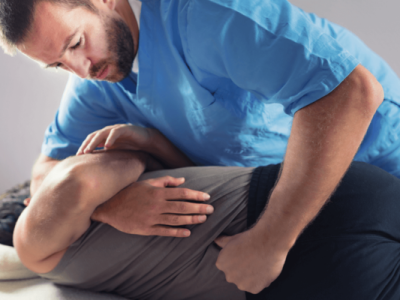
Do you feel a snapping sensation and a popping sound in your hip? It can be a result of the snapping hip syndrome. People with the syndrome feel this particular sensation as they get up from the bed or the chair after long hours of sitting. You can even experience the same as you are taking a walk. So, do you want to know “why does my hip pop?”
These problems are common among dancers and athletes. However, you and I can also feel the same popping sound in our hips.
Here is a guide to discuss why the hip pops and how we can fix the problem. I will also share a brief note on how we can prevent this problem.
Why Does My Hip Pop?

If you want to know “why does my hip pop”, you have to understand the problem happens because of the anatomy or hip formation of a person. To be more specific, sometimes, the muscles and tendons in our hips move over a bony growth. As a result, we get to hear a popping sound or experience a snapping sensation in the hip.
The snapping hip syndrome can be of two types. Your hip can have external and internal snapping.
External Hip Popping
Most of us having a snapping hip syndrome experience external hip popping. This one happens in the back, side or front of our hips. Tightening of the following muscles causes external hip popping.
- Iliotibial (IT) Band
- Hamstrings
- Hip Flexors
When these muscles become tight, and they move over the protruding bone structures in the hip, there is a popping sound and sensation.
Internal Hip Popping
The sensation of internal hip popping is deeper. You can experience the same sensation in your joints or the front of your hip. There are two reasons why internal hip popping takes place.
- Problem in the fibrocartilage gasket around your hip socket
- The cartilage lining the hip socket
Now that you know why does my hip pop and what the types are, it’s time to learn the treatments and preventive measures for the problem
What Are The Treatments If Your Hip Pops?
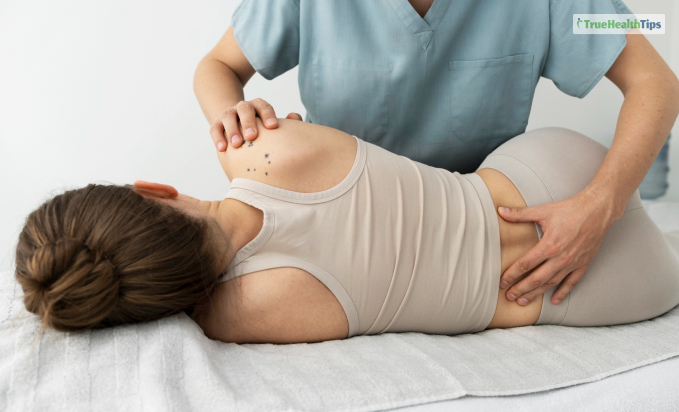
The treatment of snapping hip syndrome starts with the right diagnosis. To diagnose the problem, the doctor will ask you questions about the sensation and sound you experience. At the same time, you will need to share your medical history, including any history of hip problems you had to help your doctor in the diagnosis.
The doctor will also ask you to move your hips in certain ways while applying gentle pressure. It is important to understand the locations of the muscle problems. Further, for accurate diagnosis, the doctor will ask you to do an X-ray and magnetic resonance imaging or MRI.
Once the diagnosis is made and the doctor is sure that you have a snapping hip syndrome, they will start the following treatments.
Rest For Rejuvenation

The doctor will suggest a period of rest if your hip is popping. As you rest, the symptoms will improve, and the tendons will start to heal. Further, rest is important if you want a smooth transition into your daily life and other stages of treatment.
Physical Therapy
Physical therapy can be of great help if you want to get rid of hip popping and its uncomfortable symptoms. The therapist will ask you to stretch your muscles so that the muscles and tendons become stronger.
Injections
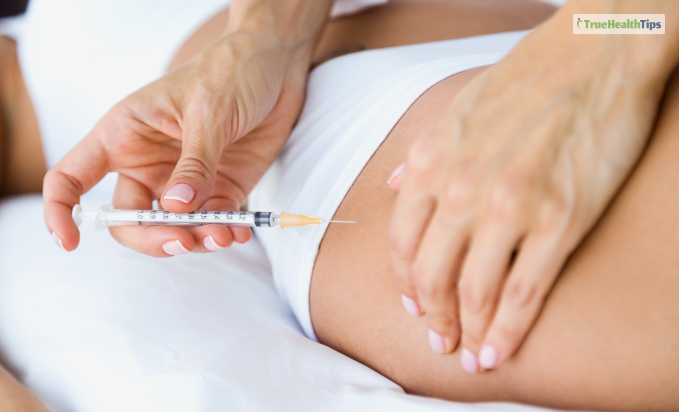
Doctors also administer corticosteroid injections to reduce inflammation and relieve the symptoms. Doctors will perform an imaging of your hips to identify the exact location of inserting injections.
Medicines
For the treatment of popping hips, doctors also suggest ibuprofen medications. These medicines are helpful in reducing swelling and inflammation.
Compression
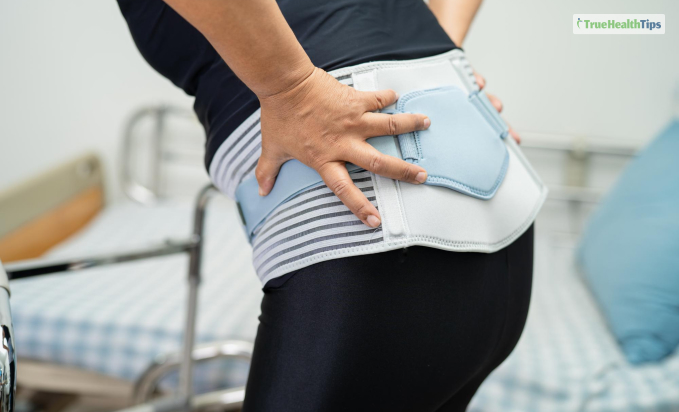
A combination of hot and cold compress is a useful treatment if you are suffering from snapping hip syndrome. This is especially effective if there is inflammation in the muscles and you are feeling pain caused by another muscle or tissue problems caused by popping hips.
Arthroscopic Surgery
The last resort for the treatment of popping hips is arthroscopic surgery. This surgery is done to lengthen the problematic tendons. The surgery is also useful to remove tendons causing discomfort and the popping sensation.
This surgical procedure is minimally invasive, and the doctor will not cut open a major area for the straightening or removal of the tendons. Further, the surgery is done using advanced tools. So, there will be a very short recovery time after the surgeries, and you will be able to get back to your normal life in a while.
Taking some preventive measures helps to avoid the snapping hip syndrome or the hip popping problem. So, in the next section, I will talk about some preventive measures to keep your hip healthy.
How Can I Prevent My Hip From Popping?

The preventive measures for getting a healthy hip are easy. Follow them to avoid having problems in the tendons and muscles.
- Staying active is the key to avoiding snapping hips. So, as you wake up in the day and plan the activities for the day, make sure that you are making movements. Being inactive or leading a sedentary lifestyle can cause popping hips and other muscle problems, and you must not do that if you want to know, “why does my hip pop.”
- Seek help from professional experts and trainers to know what type of exercises will be beneficial for you. Exercises that stretch and strengthen core muscles are ideal to avoid popping hips.
- Snapping hip syndrome is an annoying muscle problem. However, one good thing about this problem is that it does not make you feel any pain or discomfort. Still, ignoring this problem for a long time can cause major problems like bursitis. In bursitis, the tissues surrounding your hips swell up.
Recent Research In Hip Pop Treatment
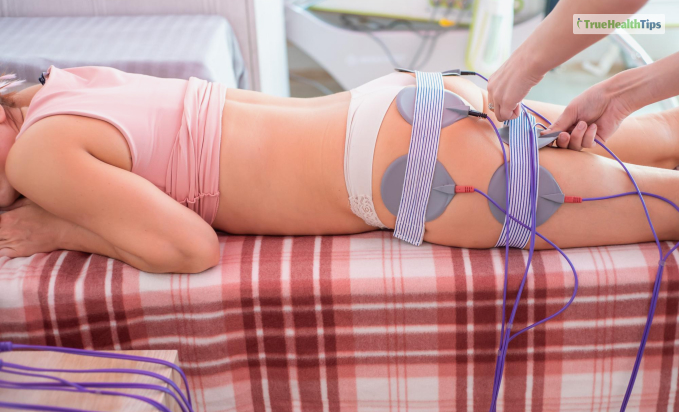
As per the recent, there is clear evidence which shows how people with this condition can benefit from the recent advancement in treatment. Here’s a look at all the innovation that can help you:
Biomedical Findings
The current research in biomechanics has found that there are complex hip popping mechanisms. The studies have found that using imaging techniques such as dynamic MRI, there seems to be a dynamic interaction between the hip joint and the surrounding tissues during movement. This also includes the adjacent structures that are present. The elaboration of the kinetics and the motion of the hip popping (kinematics), the diagnosis can be made accurate. This makes it easier for the physician to conduct proper diagnosis and develop a treatment strategy that is perfect for the patient.
Muscular Imbalance and Dynamic Stabilization’s Role
The current evidence is also suggestive of the impairment in dynamic stabilization and muscular imbalance that is playing a crucial role in the pathogenesis of hip popping. This dysfunction affects the external rotators, hip abductors, and the stabilizing muscles that can make an individual more likely to experience abnormal patterns of movement and joint issues. These lead to the onset and gradual increase in hip popping.
As a result, the investigation into the rehabilitation process focuses on restoring muscular balance that can optimize neuromuscular control. Thus, promoting dynamic stability in the joints, alleviating the symptoms and preventing a recurrence.
Imaging Modalities Are Also Seeing an Advancement
The discovery of cutting-edge imaging techniques has brought a revolution in the diagnosis of hip popping. These include high-resolution ultrasound which allows the real-time visualization of soft tissue structures. Thus, making it easy to identify the intra-articular pathologies such as synovial impingement.
Other identification that has become easier include labral tears and loose bodies. Other quantitative imaging techniques such as shear wave elastography and ultrasound elastography have made it easier to investigate tissue stiffness. These techniques also allow looking into the biomechanical properties, which help in characterizing the musculoskeletal disorders. Thus, guiding personalized treatment interventions for the patient.
Medicines Promoting Regeneration
The approach of regenerative medicine includes platelet-rich plasma therapy, stem cell therapy and injecting growth factors. These have recently been accepted as adjunctive therapy for hip popping also musculoskeletal conditions. The promotion of the regenerative potential of biological agents has become a key tool in inflammatory response modulation. Agents such as mesenchymal stem cells and autologous platelets help promote tissue repair, thereby enhancing functional recovery.
The ongoing clinical trials are focusing on the efficacy, safety and long-term results of regenerative therapies that can help manage hip popping, thus optimizing joint health.
Therapies That Are Minimally Invasive
Hip arthroscopy and percutaneous tenotomy are minimally invasive and are effective in refractory cases of hip popping. The arthroscopic techniques help direct visualize the affected area, thus removing pathological tissues and correcting structural abnormalities. Moreover, with the use of ultrasound of fluoroscopic guidance, percutaneous tenotomy helps in precise release of tight ligaments or tendons which provides relief from symptoms, with little morbidity and a sped-up recovery.
Final Words
I hope that you have found the answer to your question, “why does my hip pop,” This problem or sensation in the hips happens when some muscles or tendons run over bony growths in your hips. You can prevent this problem by remaining active and practicing exercises that strengthen your core and hip muscles.
The treatments for this problem include medications, injections, and surgeries. So, choose an active lifestyle to avoid having this problem.
Read Also:
